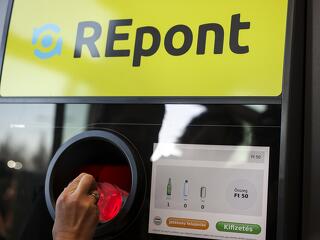Most eCommerce Markets Are Not Global
European firms are often thought to hold fewer of the keys to success in the world of electronic commerce (eCommerce) than United States businesses. Certainly, as noted in this study, Europe presents a more challenging environment for firms engaging in eCommerce to succeed. However, the experience of operating in such diverse markets may in fact give European companies a real advantage when competing further afield.
eCommerce expands opportunities internationally
As expected, almost every European and United States company to which we spoke said that eCommerce had made their markets more international, with much greater trade across borders - but most added that this had not developed to the extent that it could be described as global. For example, only about 40 percent (and half of dot-coms) regard their customer base or their competitors in eCommerce markets as global, and a mere fifth regard their labor market as global.
The results of combining a global strategy with local knowledge
Our survey shows that many European companies have understood this well. They recognize that international expansion demands the ability to combine a global strategy with local tailoring. About 50 percent of Western European executives - more amongst the dot-coms - identify a national or regional language and culture site, a local presence, local fulfillment capability and the ability to launch across all major countries as important success factors.
Europeans are more adept at fine-tuning their business models
The survey also shows that even though equal proportions of United States and European executives claim to be playing in global markets, many fewer American executives identify these factors. Europeans seem readier than their United States counterparts to experiment with different organizational approaches to eCommerce, which may mean that they are fine-tuning their business models to local conditions.
While it would be untrue to say that American businesses cannot prosper in international eCommerce - there are many United States firms winning in markets around the world, including in Europe - these figures seem to suggest that now that eCommerce is a mass phenomenon, more European businesses are attuned to the needs of international trade.
Reports prove American websites draw traffic but not much international commerce
Research work by IDC, Jupiter and Forrester lends support to these survey results. Their reports show that United States websites draw plenty of traffic but very little trade from overseas. Most make no attempt to localize the content of their sites, and international fulfillment is poor.
Europeans are more likely to become successful international explorers
Europe's environment of distinct national characteristics and laws is much more like that of the rest of the world than the more homogeneous environment of the United States. Europeans are also more willing to expand internationally, following a decline during the last year in United States businesses' desire to move into new geographic markets; almost twice as many European as American organizations are using eCommerce for geographic expansion.
Those European organizations that really understand the international environment and act on that understanding may discover that their knowledge pays dividends beyond European borders. That is certainly how many Europeans see it.
Approximately 60 percent now believe that Europe could become the hub of a global eCommerce trading network. Whether this confidence is well placed or not may well depend on the extent to which European business leaders and governments manage to promote greater entrepreneurship and combine this with the strength and cultural sensitivity of established European companies.
Three types of eCommerce players; one type of winner
At the same time, it seems clear that European eCommerce offers opportunities to at least three types of player, each of them alluded to in case studies in this report.
- Some European dot-coms will succeed in fighting their way through cultural, tax and regulatory obstacles, using their local knowledge and native entrepreneurship to become long-term players.
-
- Some United States corporations and dot-coms will adjust their business and operating models to suit European mores and environment and use their typical dynamism, experience and world-class resources to succeed in Europe as they do at home.
-
- Some established European firms will succeed in using their deep pockets and powerful brands to win.
-
The winners are likely to be those that can combine the best qualities of each of these three groups. It could well be that some established companies will attempt to achieve this blend by mounting takeovers of the most successful dot-coms, now a more affordable and realistic option following the stock market corrections earlier this year.

























